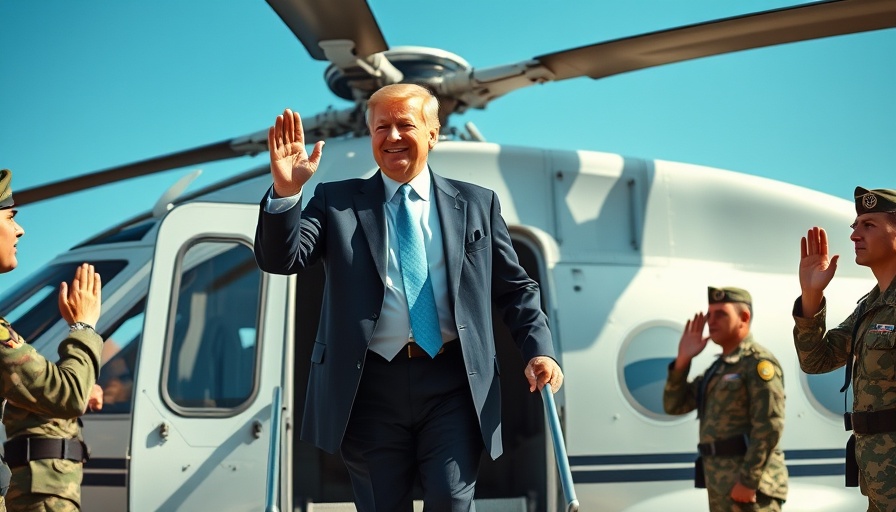
The Road to Peace: Can a Ukraine Deal Be Achieved?
The recent meeting between U.S. President Donald Trump’s envoy, Steve Witkoff, and Russian President Vladimir Putin in Moscow has reignited hopes of a diplomatic resolution to the ongoing conflict in Ukraine, which has cost thousands of lives since Russia’s invasion in February 2022. In a social media announcement following the three-hour discussion, Trump expressed optimism that a deal was imminent, stating that most key points had been agreed upon and urging for high-level talks between Kyiv and Moscow to end the bloodshed.
This development comes at a crucial time as the world watches to see if diplomatic efforts can bear fruit, especially since there have been no direct talks between the two sides since the war's early days. Ukraine's President Volodymyr Zelenskiy, who was expected to attend the funeral of Pope Francis alongside other world leaders, emphasized the importance of dialogue but remained cautiously optimistic about the prospects of a meeting with Russia.
Historical Context: Why This Moment Matters
Understanding the background of the Ukraine conflict is essential to grasp the significance of current negotiations. The war escalated when Russia annexed Crimea, marking a turning point that led to international sanctions against Russia and brought global attention to Ukraine's struggle for sovereignty. Since the onset of the war, geopolitical dynamics have shifted, and various nations have asserted their influence in the region, complicating the path to a resolution.
Trump’s approach to international negotiations during his presidency leaned towards unorthodox strategies, favoring direct dialogues, which may differ from traditional diplomatic channels. His engagement in this diplomatic effort is notable, especially considering the complexities that surround international relations in Eastern Europe.
Challenges Ahead: Differences Between Ukraine and Russia
Despite eagerness on both sides to form an agreement, significant differences still exist. Russia's demands regarding security guarantees and territorial boundaries directly clash with Ukraine’s stance on sovereignty and territorial integrity. These competing perspectives highlight the challenges that lie ahead in sealing any potential deal.
Moreover, external influences cannot be ignored. The U.S. and NATO’s involvement continues to shape the strategic calculations of both Moscow and Kyiv. As such, any agreement must not only satisfy the demands of the primary parties but also align with broader international interests.
Looking Forward: What A Potential Deal Could Mean
The implications of a successful peace deal would extend beyond Ukraine and Russia, potentially stabilizing a region fraught with tension and risk. Such an agreement may involve concessions from both sides, creating pathways for economic recovery and long-term stability. However, achieving this will require trust-building measures and transparent communication, factors that have historically been absent in dealings between these nations.
Economically, a resolution could positively impact investment strategies, especially for investors looking into Eastern European markets. Amidst geopolitical tensions, the stock market has often reacted to news around the Ukraine crisis, making it a pivotal moment for those engaged in international investing.
Economic Implications of a Peace Agreement
For investors, the prospect of peace carries several potential benefits. Market volatility has been a significant concern for investors in recent years, particularly concerning capital allocation towards Eastern Europe. A stabilizing Ukraine could herald improved investment opportunities, especially in sectors like real estate and energy.
Investment strategies might pivot towards assets in Ukraine and nearby countries, viewing the situation through a lens of recovery and growth. This unfolding scenario may encourage shifts in portfolio diversification that could include emerging market assets or even direct investments in the rebuilding of Ukraine.
Final Thoughts: The Importance of Monitoring Developments
As the situation unfolds, it's crucial for investors and political analysts to monitor developments closely. The outcome of initiatives like the recent Trump-Witkoff meeting will not only impact geopolitical relations but also affect market dynamics across many sectors.
Take Action: What You Can Do
Stay informed about the evolving situation through reliable news sources and financial analysts to understand how geopolitical developments affect your investment strategies. As negotiations proceed, consider reassessing your portfolio to ensure it aligns with the potential shifts resulting from these discussions.
 Add Row
Add Row  Add
Add 



Write A Comment